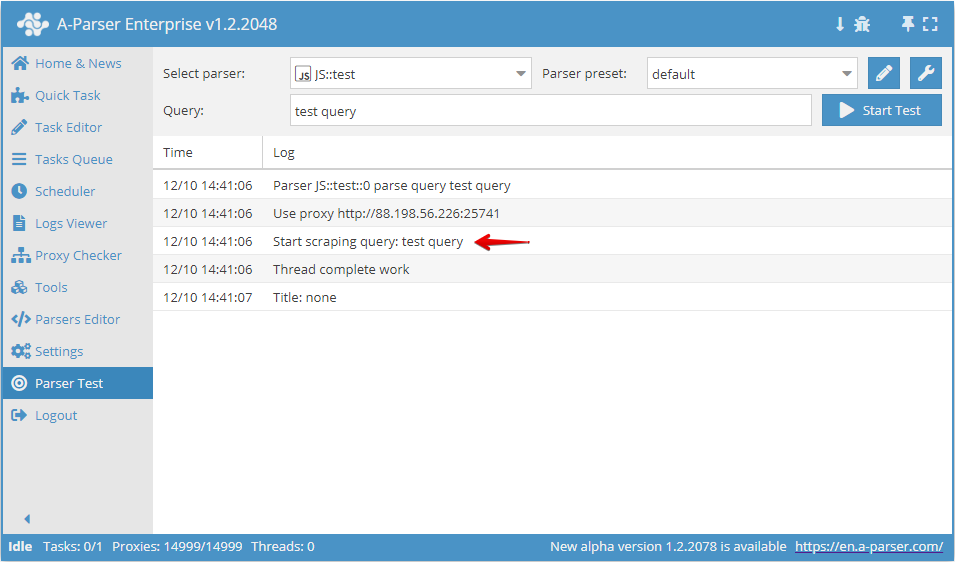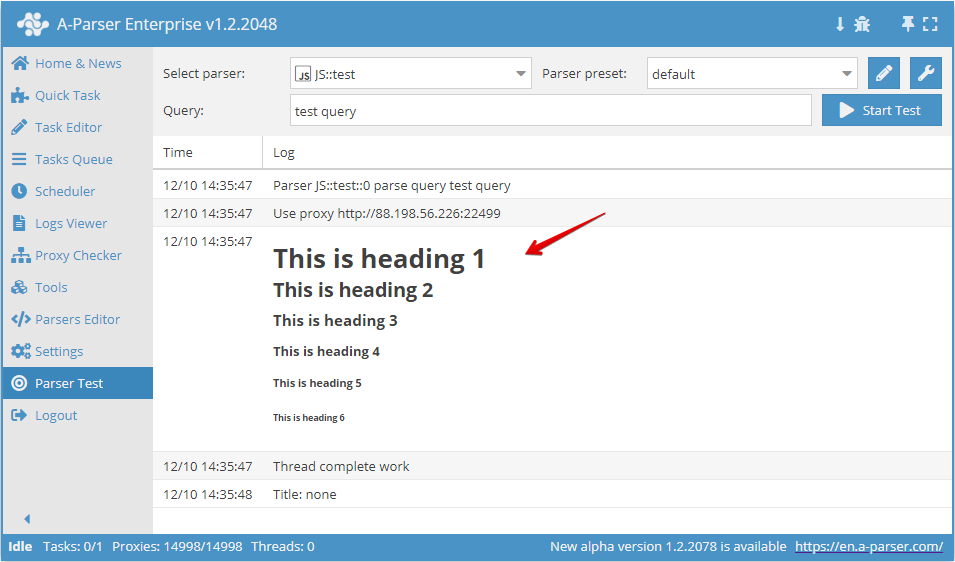Logging
The main purpose of logging is to record operations performed in the task for further analysis. Keeping logs allows identifying errors in the task's operation
this.doLog
Indicates whether the task's log is enabled, can be used as a flag for optimization, for cases when the log is not kept and the argument to this.logger.put is a complex expression
this.logger.*
.put(message)
this.logger.put(message) - adds the line message to the task log, formats the output similarly to console.log
this.logger.put("Start scraping query: " + set.query);

.putHTML(HTML)
this.logger.putHTML(code) - outputs HTML code to the task log, which will be displayed in a textarea
const message = "<!DOCTYPE html>\n"
+ "<html>\n"
+ "<body>\n"
+ "<h1>This is heading 1</h1>\n"
+ "<h2>This is heading 2</h2>\n"
+ "<h3>This is heading 3</h3>\n"
+ "<h4>This is heading 4</h4>\n"
+ "<h5>This is heading 5</h5>\n"
+ "<h6>This is heading 6</h6>\n"
+ "</body>\n"
+ "</html>";
this.logger.putHTML(message);

console.log(message)
Outputs the contents of message to the log file - aparser.log
this.console.*
All methods relate to the output of console logs, created to improve logging of different tasks and different streams within tasks
.log(...message)
this.console.log(...message) - logging tied to the current stream, allows outputting a prefix for each stream
.setPrefix(prefix)
Used in conjunction with BaseParser.setGlobalConsolePrefix(prefix) - allows setting a global prefix for all streams within the current task
this.console.setPrefix(prefix) - allows setting a prefix for the current stream, for example
this.console.setPrefix(this.threadId())